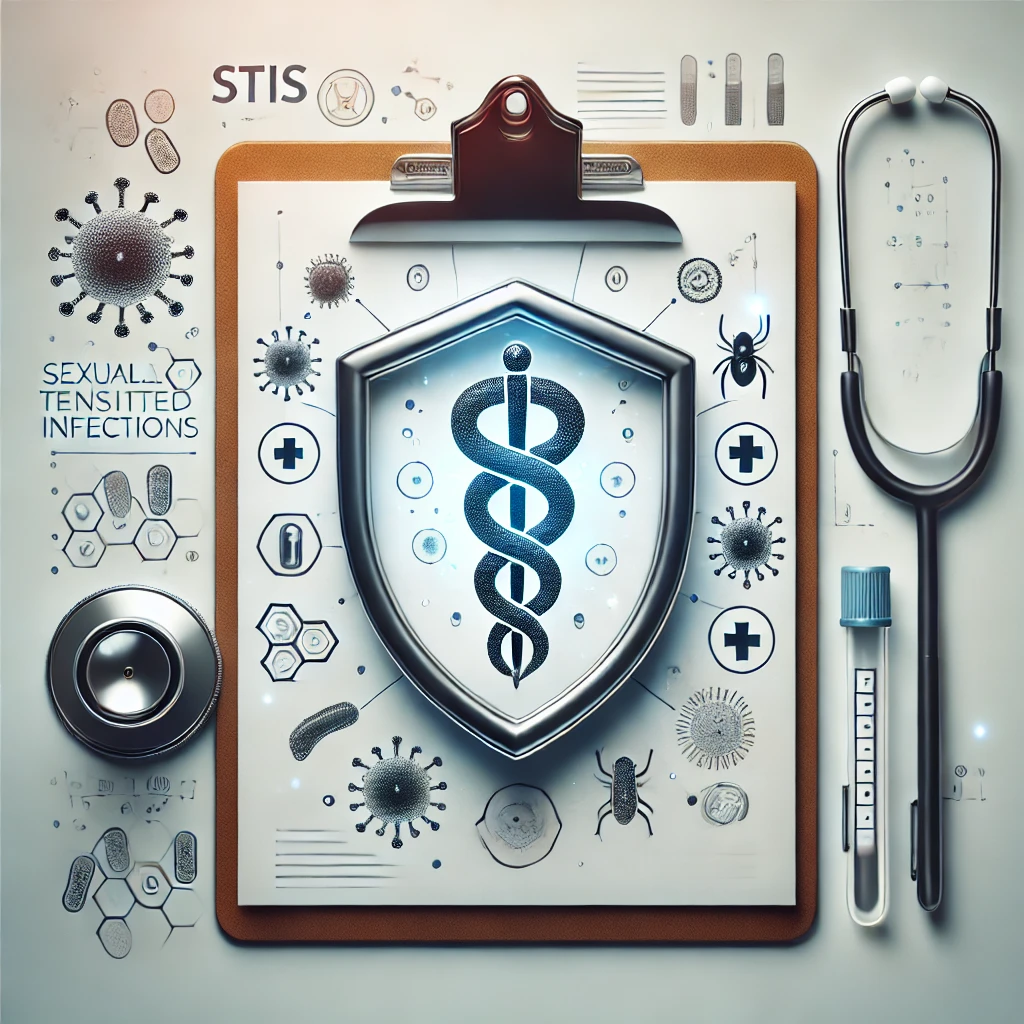Understanding Sexually Transmitted Infections (STIs) and Their Impact on Fertility


How STIs Affect Fertility
| STI | Impact on Fertility |
|---|---|
| Chlamydia | Can cause pelvic inflammatory disease (PID) in women, leading to blocked fallopian tubes and infertility. |
| Gonorrhea | Causes scarring in reproductive organs and contributes to PID and infertility in women and men. |
| Human Papillomavirus (HPV) | Linked to cervical abnormalities in women, which may impact reproductive health. |
| Herpes Simplex Virus | May cause complications during pregnancy but rarely affects fertility directly. |
| Syphilis | Increases risk of miscarriage and congenital infections but less impact on fertility directly. |
Sexually transmitted infections (STIs) can have significant implications for overall health, including fertility. Untreated STIs are a leading cause of infertility, particularly in cases where infections lead to complications like pelvic inflammatory disease (PID) or damage to reproductive organs. This article explores how common STIs impact fertility in both men and women and provides guidance on prevention, testing, and treatment.
Common STIs and Their Impact on Fertility
1. Chlamydia
- In Women: Chlamydia is one of the most common STIs affecting fertility. If untreated, it can lead to PID, causing scarring in the fallopian tubes and blocking the pathway for the egg and sperm to meet.
- In Men: Chlamydia can cause epididymitis, inflammation of the tube that carries sperm, leading to reduced sperm motility and quality.
2. Gonorrhea
- In Women: Like chlamydia, gonorrhea can lead to PID, resulting in fallopian tube damage and infertility.
- In Men: Gonorrhea can cause scarring in the reproductive tract, blocking sperm passage and reducing fertility.
3. Human Papillomavirus (HPV)
- HPV is the most common STI globally. While it does not directly affect fertility, high-risk strains can cause cervical abnormalities or cancer, which may require treatments that impact reproductive health.
4. Herpes Simplex Virus (HSV)
- HSV rarely impacts fertility directly but can cause complications during pregnancy, such as neonatal herpes, which can pose risks to the baby.
5. Syphilis
- While syphilis does not typically affect fertility, it increases the risk of miscarriage and stillbirth. Timely treatment is essential for preventing complications.
How STIs Affect Female Fertility
-
Pelvic Inflammatory Disease (PID)
- Caused by untreated STIs like chlamydia and gonorrhea, PID is a major contributor to infertility in women. It damages the fallopian tubes, ovaries, and uterus, making conception difficult or impossible.
-
Blocked Fallopian Tubes
- Scarring and blockages from PID prevent sperm from reaching the egg, leading to infertility or ectopic pregnancy.
-
Cervical Damage
- Certain STIs, like HPV, can cause cervical damage or abnormalities that may complicate pregnancy or require surgical treatments affecting fertility.
How STIs Affect Male Fertility
-
Epididymitis
- Inflammation caused by chlamydia or gonorrhea can damage the epididymis, reducing sperm quality and motility.
-
Obstructions in the Reproductive Tract
- Scarring from STIs can block sperm pathways, preventing sperm from being ejaculated or reaching the egg.
-
Decreased Sperm Quality
- Chronic infections can lead to lower sperm count, reduced motility, and increased abnormal sperm morphology.
Prevention and Early Detection
-
Practice Safe Sex
- Use condoms to reduce the risk of contracting STIs. While not 100% effective, condoms are highly protective against most STIs.
-
Regular Testing
- Routine STI testing is crucial, especially for sexually active individuals with multiple partners or those planning to conceive.
-
Prompt Treatment
- Early treatment of STIs with antibiotics or antiviral medications can prevent long-term complications that impact fertility.
-
HPV Vaccination
- Vaccination against HPV can protect against high-risk strains that cause cervical cancer and other reproductive health issues.
Treatment Options for STI-Related Infertility
-
Antibiotic Therapy
- Treat bacterial infections like chlamydia and gonorrhea early to prevent complications.
-
Surgical Intervention
- Surgery may be required to repair damage from PID or unblock fallopian tubes and sperm pathways.
-
Assisted Reproductive Technologies (ART)
- For couples with irreversible damage, ART such as IVF can help bypass issues like blocked fallopian tubes or low sperm motility.
-
Fertility Preservation
- In cases where STIs require aggressive treatments like cervical surgery, options like egg or sperm freezing can preserve fertility.
Conclusion
Sexually transmitted infections can significantly impact fertility if left untreated, causing conditions like PID, scarring, and reduced sperm quality. Prevention through safe sex practices, regular testing, and timely treatment is crucial for protecting reproductive health. For those facing infertility due to past infections, advanced medical treatments and reproductive technologies offer hope.
Contact Us if you have questions about STIs, fertility testing, or treatment options. We’re here to guide you on your journey to reproductive health.
FAQs
-
Can STIs cause permanent infertility?
- Yes, untreated STIs like chlamydia and gonorrhea can cause permanent damage to reproductive organs, leading to infertility.
-
How can STIs be prevented?
- Use condoms, get regular STI testing, and ensure early treatment for infections to reduce the risk of complications.
-
Does HPV affect fertility?
- HPV does not directly impact fertility but can cause cervical abnormalities or cancer, which may require treatments affecting reproductive health.
-
Can STIs affect male fertility?
- Yes, STIs can lead to conditions like epididymitis, scarring, and reduced sperm quality, all of which impact male fertility.
-
What are the treatment options for STI-related infertility?
- Treatments include antibiotics, surgery to repair reproductive damage, and assisted reproductive technologies like IVF.



